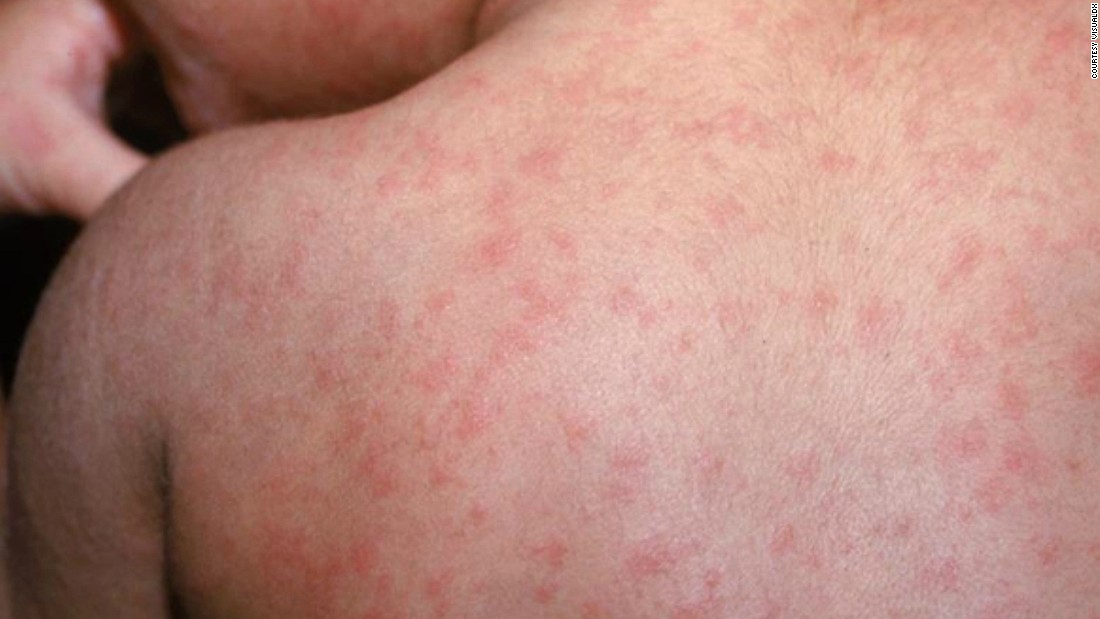Measles In Kansas: Causes, Prevention, And Current Situation

Table of Contents
Causes of Measles in Kansas
Measles, a highly contagious disease, is caused by the measles virus, which spreads easily through airborne droplets produced by an infected person when they cough or sneeze. Understanding the factors contributing to outbreaks in Kansas is crucial for effective prevention.
The Measles Virus: Highly Contagious and Airborne
The measles virus is exceptionally contagious. Even brief contact with an infected individual can lead to transmission. The virus remains viable in the air for up to two hours after an infected person has left the area. This airborne nature makes controlling its spread challenging.
Unvaccinated Populations: A Major Contributor to Outbreaks
A significant factor driving measles outbreaks is the presence of unvaccinated individuals. Herd immunity, where a large percentage of a population is vaccinated, protects even those who cannot be vaccinated. However, when vaccination rates drop below a critical threshold, outbreaks become more likely. Data on Kansas's vaccination rates, particularly concerning MMR (measles, mumps, rubella) vaccination rates among children, will be crucial in understanding the current vulnerability. We need to track metrics such as "measles vaccination rates Kansas" and "unvaccinated children Kansas" to assess the risk accurately.
Travel-Related Cases: Importing Measles into Kansas Communities
International travel plays a considerable role in introducing measles into communities that might otherwise be protected. Individuals traveling to regions with ongoing measles outbreaks can return carrying the virus, sparking localized outbreaks. Tracking "imported measles cases" and "international travel measles" is vital for effective public health responses.
Outbreak Factors: A Complex Interplay
Several factors contribute to measles outbreaks, acting in concert to create a susceptible environment. These include:
- Low vaccination rates: As discussed above, insufficient vaccination coverage weakens herd immunity.
- Overcrowded settings: Schools, daycares, and other crowded spaces provide ideal conditions for the rapid spread of the virus.
- Weakened immune systems: Individuals with compromised immune systems are particularly vulnerable to severe measles complications.
Prevention of Measles in Kansas
Preventing measles in Kansas requires a multi-pronged approach focusing on vaccination, hygiene, public health initiatives, and prompt medical attention.
Vaccination: The Most Effective Prevention
The MMR vaccine is incredibly effective in preventing measles. A two-dose schedule provides optimal protection, offering a high level of immunity to the majority of recipients. Accessing reliable data on "MMR vaccine Kansas" and "measles vaccine effectiveness" is crucial in evaluating the success of vaccination programs.
Hygiene Practices: Minimizing Transmission
Simple hygiene practices can significantly reduce the transmission risk. These include:
- Frequent handwashing: Washing hands thoroughly with soap and water for at least 20 seconds helps eliminate the virus.
- Covering coughs and sneezes: Covering your mouth and nose with a tissue or your elbow prevents the spread of airborne droplets.
Public Health Initiatives: A Coordinated Response
Public health agencies like the Kansas Department of Health and Environment play a vital role in monitoring measles cases, conducting contact tracing to identify and isolate infected individuals, and implementing vaccination campaigns. Analyzing "public health measures" in Kansas regarding measles helps to assess the effectiveness of their response.
Early Detection and Treatment: Mitigating Severity
Early detection and appropriate supportive care are vital in reducing the severity of measles complications. Prompt medical attention can significantly improve outcomes.
Current Situation of Measles in Kansas
Understanding the current situation of measles in Kansas is crucial for informed decision-making and effective public health interventions.
Recent Outbreaks: Tracking Cases and Locations
While specific data regarding recent measles outbreaks in Kansas requires consultation with official sources like the Kansas Department of Health and Environment, regularly checking for updates on "Kansas measles outbreak map" and "recent measles cases Kansas" provides up-to-date information. Analyzing "current measles statistics Kansas" paints a clearer picture of the evolving situation.
Public Health Response: Actions Taken
Public health authorities typically respond to measles outbreaks with swift action, including targeted vaccination campaigns in affected areas and public awareness initiatives to educate the community.
Risk Assessment: Identifying Vulnerable Populations
Identifying and focusing on high-risk populations, such as unvaccinated children and individuals with weakened immune systems, is crucial for effective prevention strategies.
Future Outlook: Predictions and Prevention
The future outlook on measles in Kansas depends heavily on maintaining high vaccination rates and continuing robust public health surveillance. Predictions regarding future outbreaks must be informed by current vaccination levels and trends.
Conclusion: Protecting Kansas Communities from Measles
Measles in Kansas remains a public health concern. Outbreaks are often linked to low vaccination rates, international travel, and crowded settings. Effective prevention relies on high MMR vaccination coverage, diligent hygiene practices, swift public health responses, and early detection of cases. Protect yourself and your community from measles in Kansas. Get vaccinated today! Regularly check the Kansas Department of Health and Environment website for the latest updates on measles cases and vaccination recommendations. Discuss any concerns you have about the MMR vaccine with your healthcare provider.

Featured Posts
-
 Boesens Commencement Address At Grand View University
May 30, 2025
Boesens Commencement Address At Grand View University
May 30, 2025 -
 Real Madrid Eyeing Man United Star Bruno Fernandes Transfer Speculation
May 30, 2025
Real Madrid Eyeing Man United Star Bruno Fernandes Transfer Speculation
May 30, 2025 -
 Southern Lebanon Dismantling Hezbollah With Israeli Intelligence Assistance
May 30, 2025
Southern Lebanon Dismantling Hezbollah With Israeli Intelligence Assistance
May 30, 2025 -
 Augsburg Fussball Die Diskussion Um Den Trainer Und Die Zukunft Des Vereins
May 30, 2025
Augsburg Fussball Die Diskussion Um Den Trainer Und Die Zukunft Des Vereins
May 30, 2025 -
 Manitoba Invests In Advanced Care Paramedics For Rural And Northern Communities
May 30, 2025
Manitoba Invests In Advanced Care Paramedics For Rural And Northern Communities
May 30, 2025
